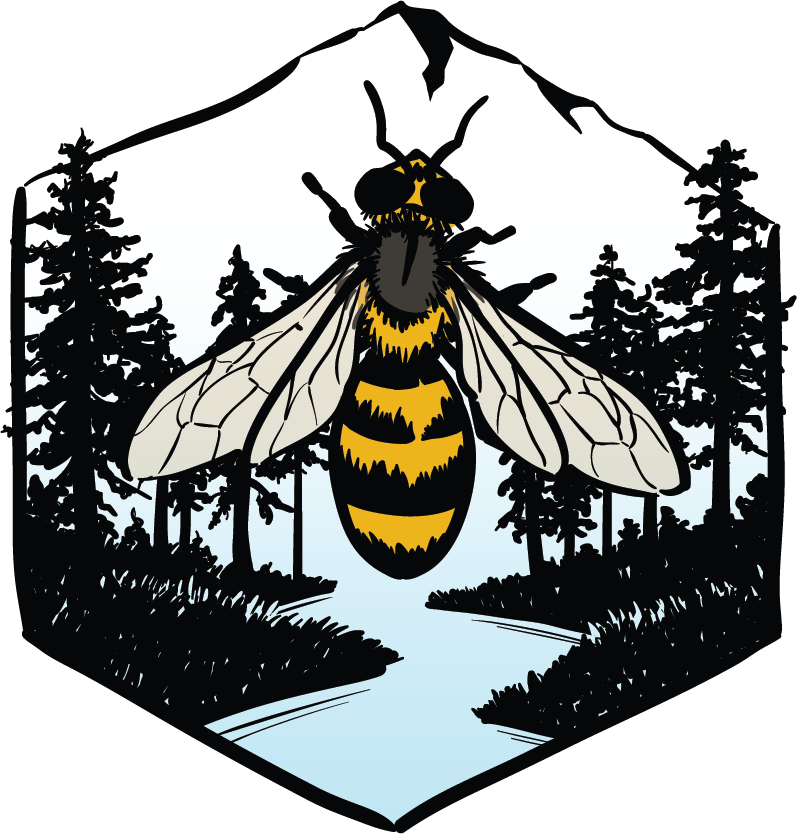One of the books I took to Bolivia to catch up on my reading was Bernd Heinrich’s newest The Homing Instinct, his 16th book; I professionally reviewed his Bumble Economics book several years ago. The book was a gift from my beekeeper hosts when I talked to the Maine beekeepers in mid-October.
Before leaving Oregon for Bolivia I assisted Powell’s Book store in Portland with a reading of Bee Times the newest book by another bee writer Mark Winston. Both Mark and Bernd were University Professors studying bees (in Bernd’s case bumble bees) who chose to leave their research positions for something else – in Bernd’s case a cabin in the Maine woods. They both are naturalists and interestingly weave bees into their stories about nature.
The Homing Instinct is about how birds (lots of different ones) find their way about, some over incredibly long distances, using navigation skills we lack (and really know little about – yes it is a mystery story but without the bad guys!) But there are also eels, salmon, turtles, frogs, mice, bears and other insects, like tent caterpillars and monarch butterflies, in addition to bees. Both Bernd and Mark have whole chapters on bees, their nests and how they find their way about to find, exploit and bring back resources to the home nests.
In Bee Times, Mark Winston writes how we can learn something about ourselves by understanding bees. The Homing Instinct is in the same vein. In my case I leave one home in Tigard to go to another in Bolivia. I even switch bee families, from gentle European-race bees in Tigard to less-than-gentle Africanized bees in Bolivia. Most people do not have such dramatic home changes in their lifetime.
I think of Thanksgiving and Christmas as “home ”holidays – we go home or the kids come home and families celebrate together. In my case I change homes (and cultures) during these holidays. If you or family member purchased a home, or you purchased a new vehicle, where commuters spend much of their time, you were experiencing some homing changes. Perhaps too some of your bee “families” are in a new home – one they selected and some in a new hive you provided for them.
How dramatic it must be for a swarm to leave home, cluster and then await the decision of but a few scouts as to where the new home will be. And in the process they stay as a social group, with few abandoning the cluster. Tom Seeley, with his studies on how swarms selected a home on Appledore Island off the coast of Maine, included in Bernd’s The homing Instinct, found the process to be of several sequential steps. Tom identified the 6 steps as: scouting, reporting, advertising, debating, rousing and finally piloting to the agreed-upon site.
Did you recall going through similar steps buying your new home/vehicle? Perhaps the sequence would have been slightly different? Did you need to ‘be psyched’ – ‘roused’ to begin your search? In bee swarms, rousing is the step needed before movement to a selected site as the bees need to shiver to elevate their body temperatures to permit them to fly. For humans, the ‘first step’ is often the hardest – we need to psych ourselves to start the process. In honey bees, a few scouts make the decision on the new home site – as we do for the bees when we provide a new hive for their home.
How much do you consider the bees in your choice of a new hive to house them? Here in Bolivia they start many colonies from swarms and believe you need introduce a swarm to a hive by making the hive itself attractive. The standard “new” hive , all new wood, new foundation frames (too often with beeswax contaminated with paraffin) and a new location in an apiary sometimes is not good enough for the bees. Not surprisingly, they may respond by absconding. So the first step, homing is often the most critical one to having the bees stay and work for us.
As we think back on the past year, analyze what we did well or need to improve upon and prepare for the new year, it is perhaps a good time to think about what we offer bees. Can we make our hive offering better for the bees and might we make some apiary changes to help them better find their home as they return from foraging? Something to think about in our bee stewardship.
And from Bolivia: Feliz Navided y próspero Año Nuevo – Felices fiestas!
